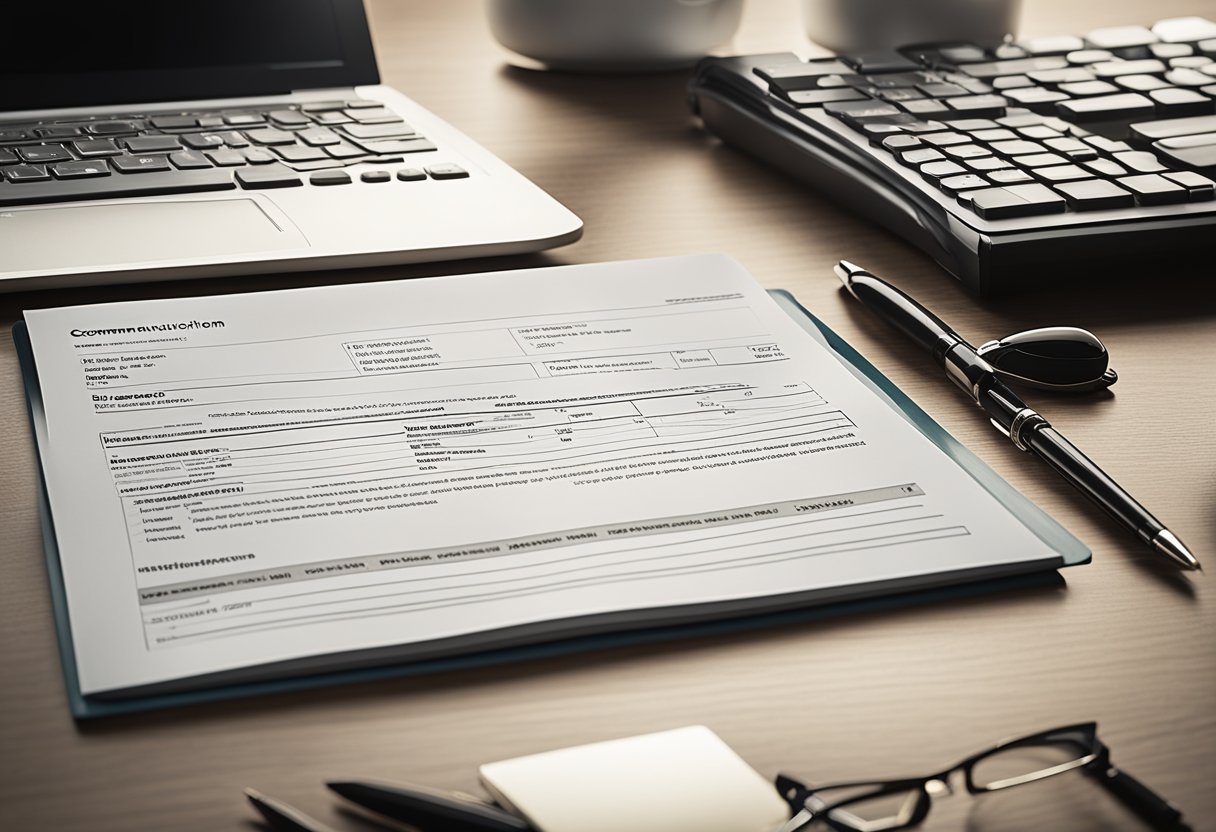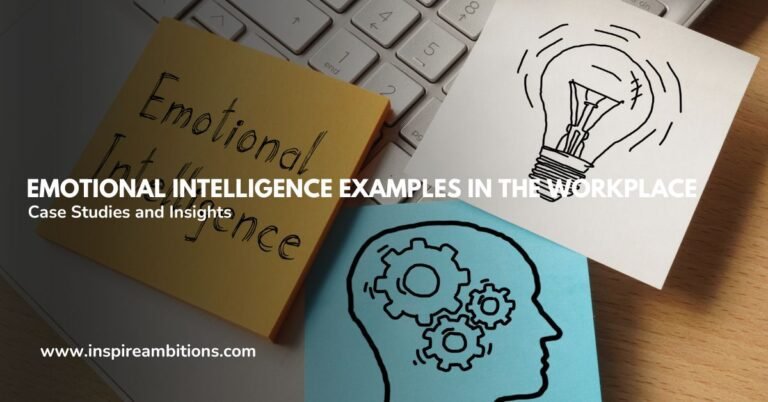সেরা কর্মচারী পর্যালোচনা মন্তব্য - কার্যকর প্রতিক্রিয়া তৈরি করা
Performance reviews are a fundamental aspect of পেশাদারী উন্নয়ন and organisational growth. They serve as a platform for managers to commend employee achievements, identify improvement areas, and set future goals. Crafting effective employee review comments is an art that requires a balance of honesty and tact.
These comments become a record of an employee’s performance over time and can significantly influence their career trajectory.

An optimal performance review leverages a blend of appraisal and feedback that focuses on critical competencies, professional growth, and future objectives.
A well-prepared performance evaluator approaches the review process with comprehensive feedback that is both constructive and motivating. Managers can encourage continuous improvement and foster a positive work environment by acknowledging accomplishments and providing clear, actionable advice.
Best Employee Review Comments – Key Takeaways
- Effective employee review comments are crucial for development and motivation.
- Constructive feedback in performance reviews focuses on growth and future objectives.
- A balanced approach during evaluations benefits both employee and organisational progress.
Preparing for Performance Reviews

Adequate preparation is crucial for conducting performance reviews that foster employee engagement and development. This section delineates steps to understand review goals and set clear expectations, creating the foundation for meaningful feedback and progress.
Understanding Performance Review Goals
Performance reviews serve multiple objectives; they are not solely a retrospective of past work. They are a strategic tool for aligning individual objectives with the company’s visions, identifying developmental opportunities, and reinforcing positive work behaviours.
Employers should plan these sessions meticulously, focusing on how they can constructively elevate an employee’s performance. The reviewer needs to understand the goals to guide the conversation effectively and comprehensively.
Setting Clear Expectations
Before the review, both the employee and the reviewer should have a mutual comprehension of the expectations from this process:
- Goals Clarification: A clear outline of the anticipated outcomes of the review helps focus the discussion.
- Performance Criteria: Communicating specific criteria for evaluation ensures that employees understand on what basis they will be judged.
- Feedback Format: Detailing the structure of performance review comments, such as strengths, areas for improvement, and goals for the next period, contributes to a structured and balanced approach.
This planning and communication stage is pivotal in driving meaningful dialogue during the performance review, setting the stage for enhanced employee engagement.
Crafting Constructive Feedback

Crafting constructive feedback is fundamental for any performance review, especially in encouraging development while acknowledging accomplice and specificity rusticity to guide employees’ improved performance এবং ব্যক্তিগত বৃদ্ধি.
Balancing Positives and Areas for Improvement
To start, a manager should strive to provide a balanced approach by recognising an employee’s strengths while pointing out improvements to ensure that employees feel valued for their contributions and understand the opportunities to develop further.
- Strengths: Highlight specific achievements and areas where the employee excels, reinforcing their value to the team.
- Areas for Improvement: Candidly but kindly share aspects of the employee’s work that could be enhanced, ensuring they are actionable and measurable.
The Art of Specific Feedback
When giving feedback, specificity is paramount; it directs employees to the exact behaviours or outcomes that require attention.
- Constructive Criticism: Address particular instances where performance did not meet expectations and offer straightforward, constructive, and straight productive.
- Positive Feedback: When employees perform well, indicate the specific actions or outcomes that stood out so they understand what behaviours to continue or repeat.
By using direct and precise language, managers set a clear path for employees to follow, making it easier for them to apply the feedback to their work and professional development.
Evaluating Core Competencies
Employee review comments should accurately reflect an individual’s performance regarding skills and abilities vital to their role. These evaluations are crucial for কর্মজীবন বৃদ্ধি and goal setting.
Assessing Technical Skills and Productivity
Individuals are often evaluated on their technical skills and overall প্রমোদ. Comments in this area should focus on how effectively an employee applies the employee’s ability to complete tasks and objectives.
- Technical Skills: “Demonstrates a proficient understanding of [specific technical skill], applying it effectively in project work.”
- প্রমোদ: “Consistently meets deadlines with high-quality work, displaying focused task execution and time management.”
Reviewing Creativity and Innovation
Evaluators should consider how an employee’s সৃজনশীলতা এবং উদ্ভাবন contribute to problem-solving and strategic development within the team.
- Creativity: “Regularly suggests original ideas that have positively influenced project outcomes.”
- Innovation: “Shows a proactive approach in adopting new methodologies to streamline workflows and enhance efficiency.”
Leadership and Teamwork Assessment
A balanced review would address an individual’s নেতৃত্বের দক্ষতা এবং দলবদ্ধভাবে সম্পাদিত কর্ম, সহ সহযোগিতা এবং দক্ষতা. Effective নেতৃত্ব এবং দলবদ্ধভাবে সম্পাদিত কর্ম often indicate an employee’s impact on team morale.
- নেতৃত্বের দক্ষতা: “Displays strong leadership by guiding the team through challenging objectives and provides clear direction.”
- দলবদ্ধভাবে সম্পাদিত কর্ম: “Exemplary team player who promotes a culture of collaboration and support amongst colleagues.”
By reflecting on these core competencies, performance evaluations become a powerful tool for personal development and strategic png.
Focusing on Professional Growth
Professional growth stands at the core of ongoing success in any career. It enhances an individual’s skillset and contributes significantly to their motivation and engagement with their work. Employers play a pivotal role in fostering this development by providing resources and opportunities aligned with the employees’ career aspirations.
Encouraging Continuous Learning
Continuous learning is essential for maintaining employees’ and organisations’ agility and competitiveness in today’s fast-paced marketplace. Reviews should applaud individuals eager to stay abreast of industry trends and expand their expertise. For instance:
- “Your commitment to staying current with the latest developments in our field is commendable and reflects positively on our team’s expertise.”
- “The initiative you’ve shown in pursuing advanced certifications has enriched your skillset and added substantial value to our operations.”
Leaders and managers should highlight how employees’ learning initiatives align with organisational goals, enhancing the incentive for continuous professional progression.
Career Development and Training Opportunities
With the proper support, employees can significantly enhance their কর্মজীবনের গতিপথ সঙ্গে পেশার উন্নয়ন programmes tailor-made to the individual’s goals and the company’s needs. Implementation of training sessions and development opportunities generates a pathway for growth, as underscored by these phrases:
- “We recognise your leadership potential and recommend our management training programme to help you develop these skills further.”
- “Identifying specific training to improve your technical skills will not only aid in your personal growth but will also have a measurable impact on your team’s performance.”
Employers should ensure that training opportunities are relevant and beneficial to the individual’s role and interests, promoting professional and personal development and motivation within their career.
Finalising the Review Process
When finalising the review process, it’s crucial to capture the essence of an employee’s performance succinctly and lay a foundation for subsequent growth and development.
Summarising Achievements and Feedback
An effective conclusion to an employee’s performance review should begin with Summarising Achievements. Here, a recollection of the commendable aspects of performance is essential. Highlighting specific performance review phrases can be pivotal, such as:
- “You have demonstrated exemplary dependability in your role, creatively responding to challenges.”
- “Your ability to maintain high-quality work under tight deadlines has been a valuable asset to the team.”
Next, the Summarising Feedback part should reflect on areas where employees can enhance their performance. Constructive feedback framed in positive language encourages improvement:
- “While your team collaboration has greatly improved, continuing to foster consistent feedback will further enhance team effectiveness.”
- “Developing your leadership skills could further your ability to contribute to team and company goals.”
Setting Future Objectives
Setting Future Objectives is about translating the evaluation into actionable goals. Clear and measurable targets should be set, keeping in mind the employee’s career trajectory and the company’s objectives:
- Short-term Goal: “Increase client satisfaction ratings by 10% over the next six months through enhanced customer service skills.”
- Long-term Goal: “Aim to take on a project leadership role in cross-departmental initiatives within the next year.”
Committing to consistent feedback throughout the year is vital, as it ensures that the employee remains aligned with these objectives and can pivot as necessary. An effective performance review comment can set the tone:
- “We look forward to your continued progress and commitment to the goals set today, with supportive check-ins every quarter.”
By systematically addressing past achievements and future goals, the finalisation of the review process becomes a tool for continuous professional development rather than just an annual formality.






